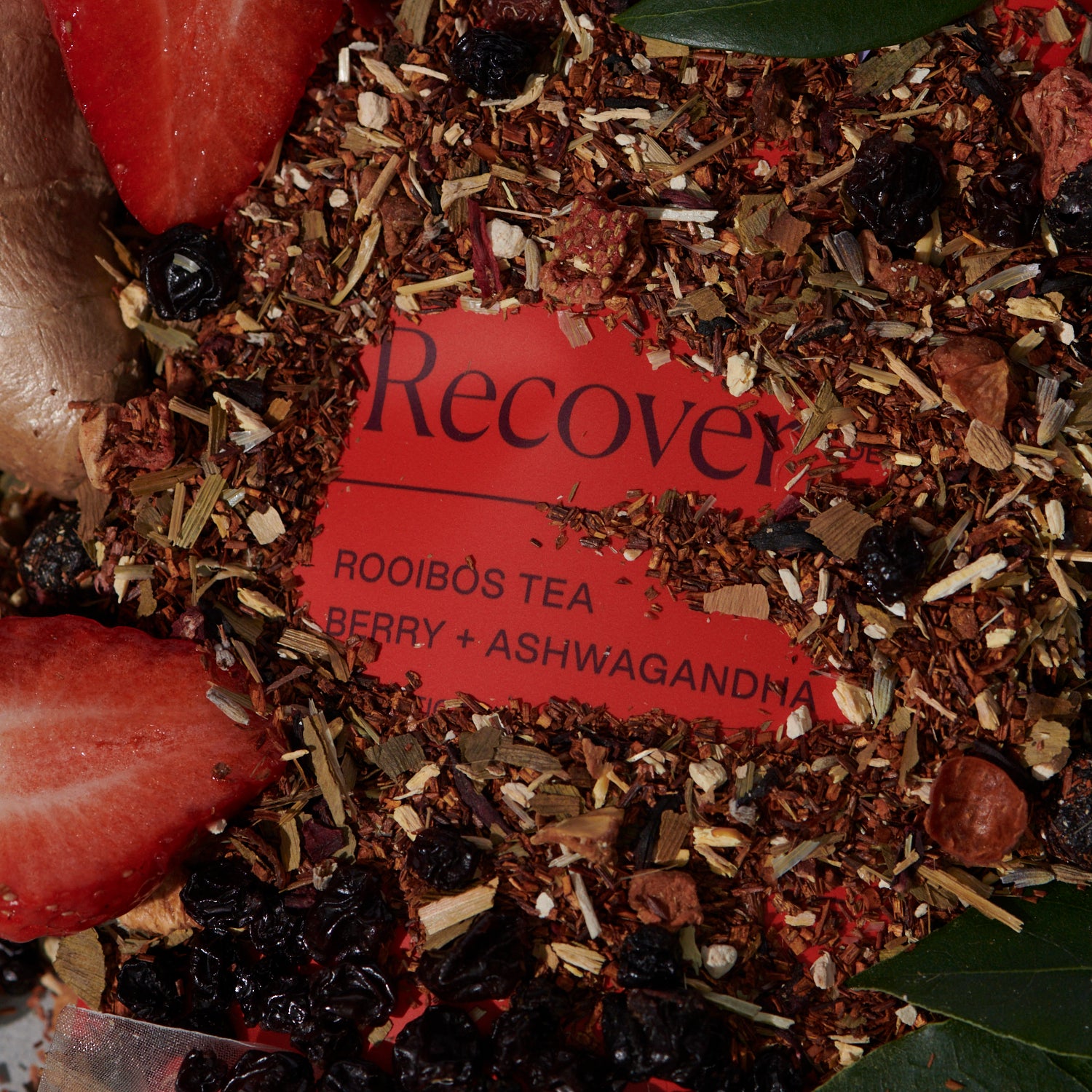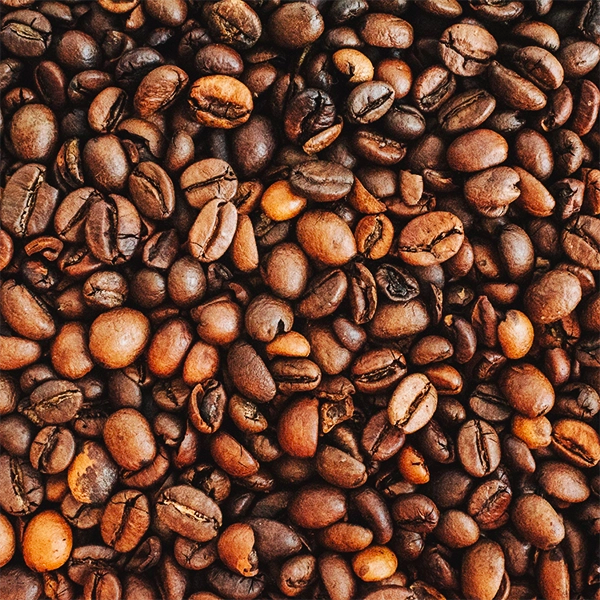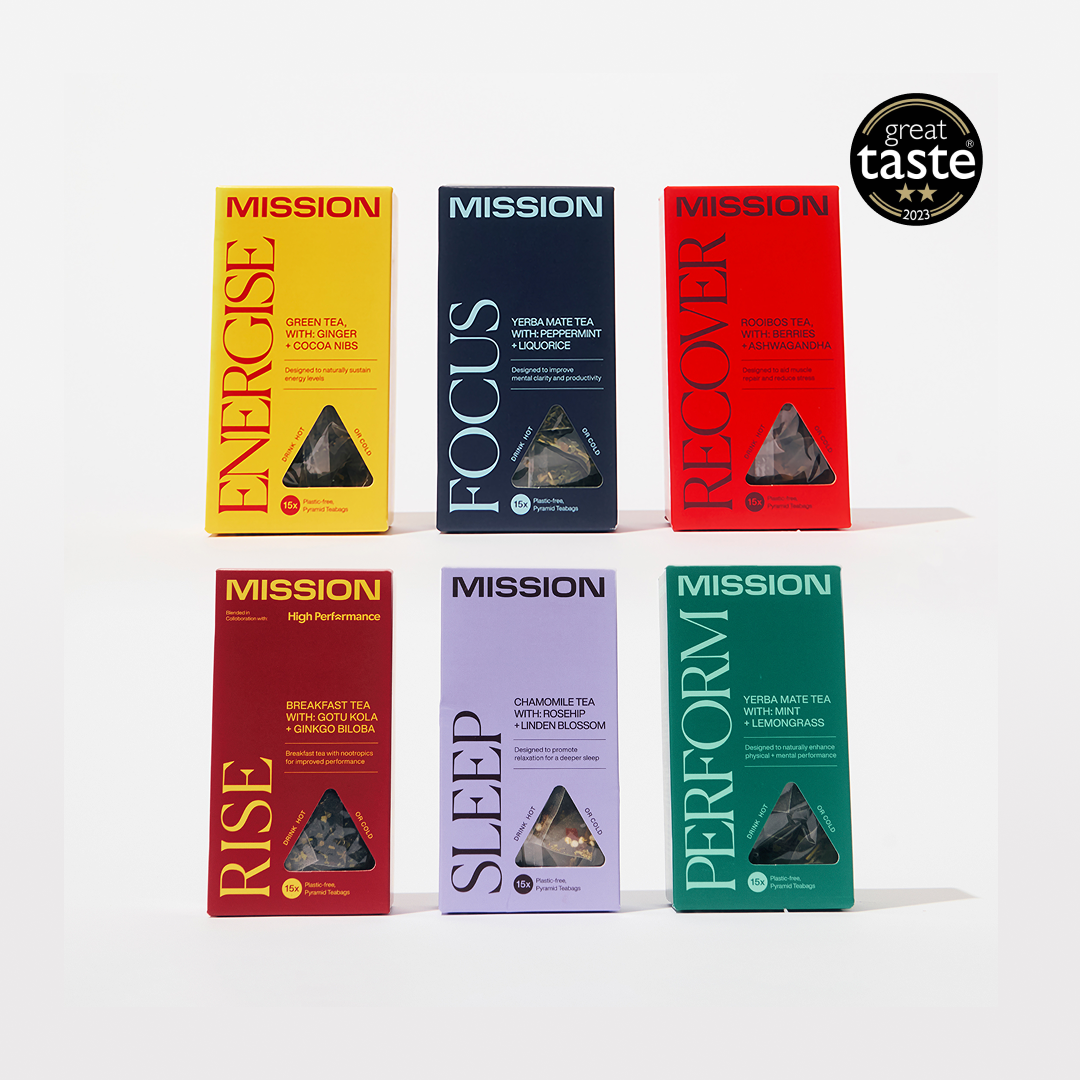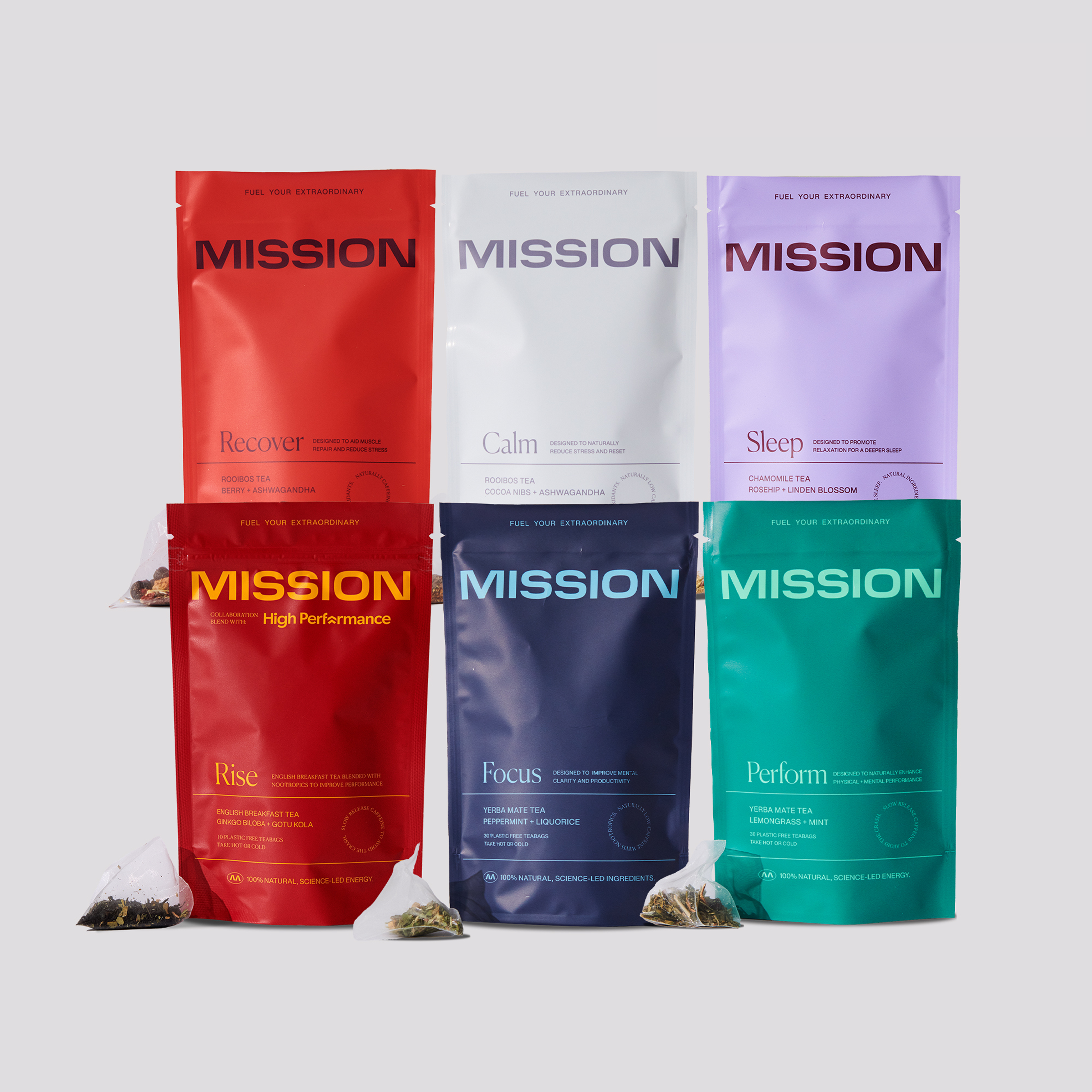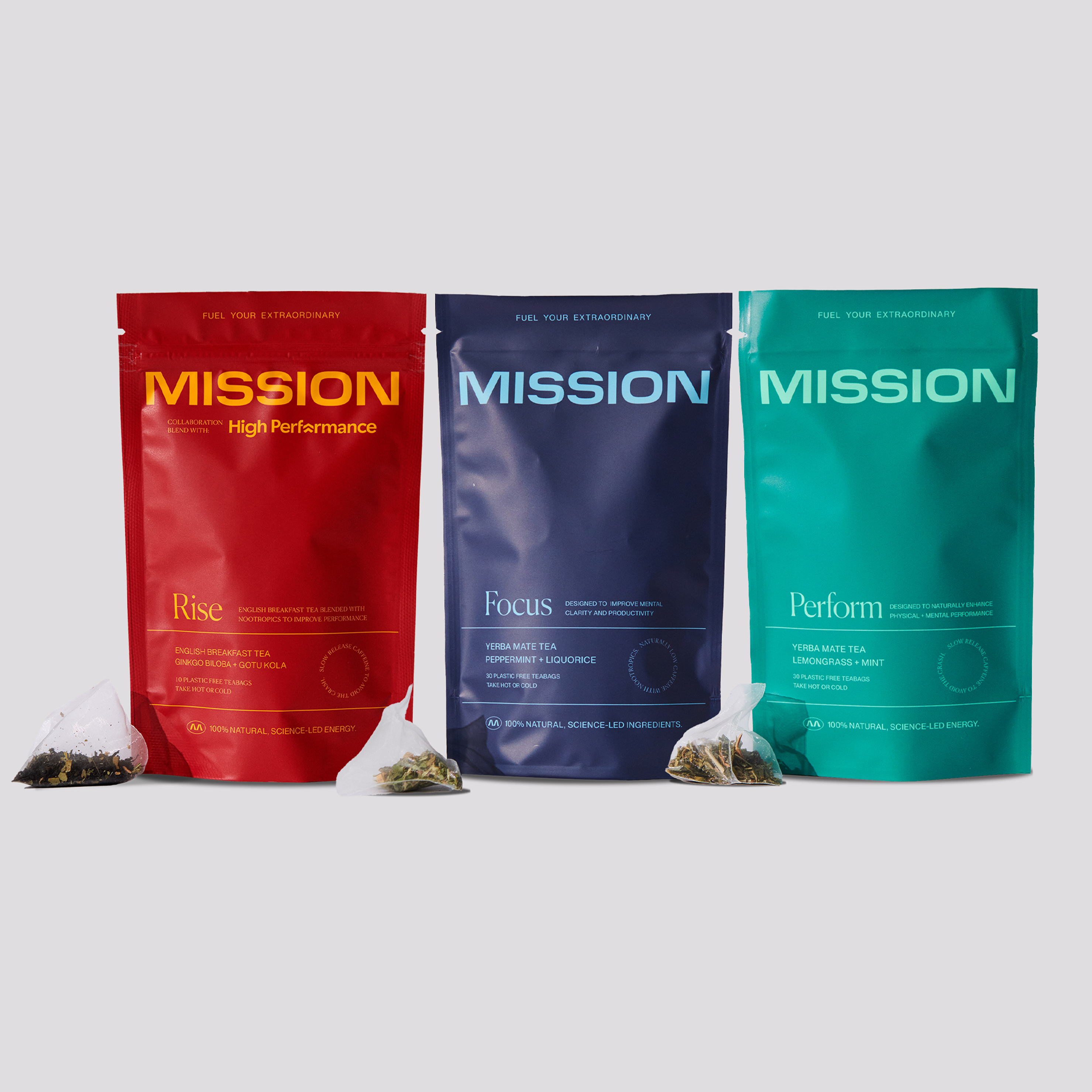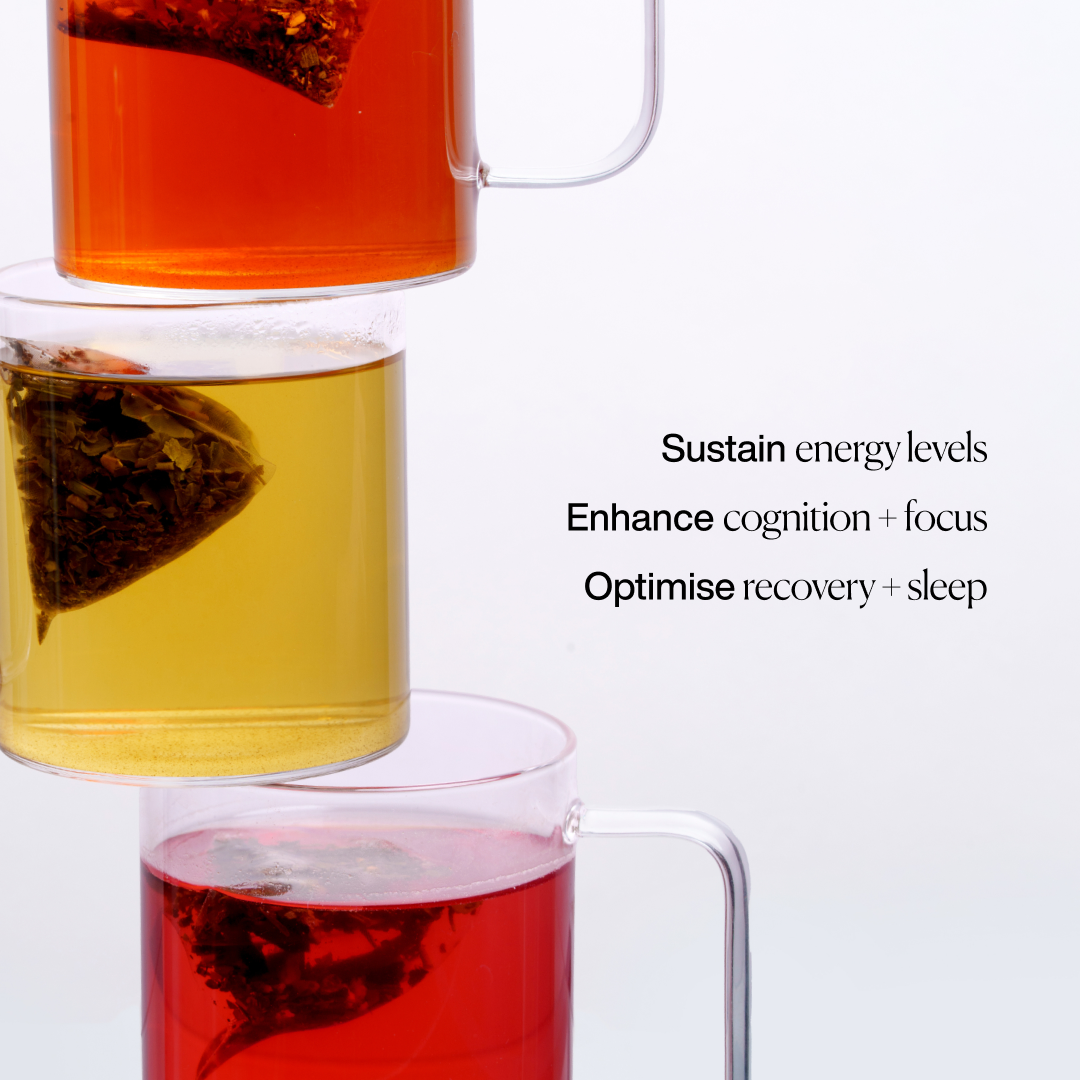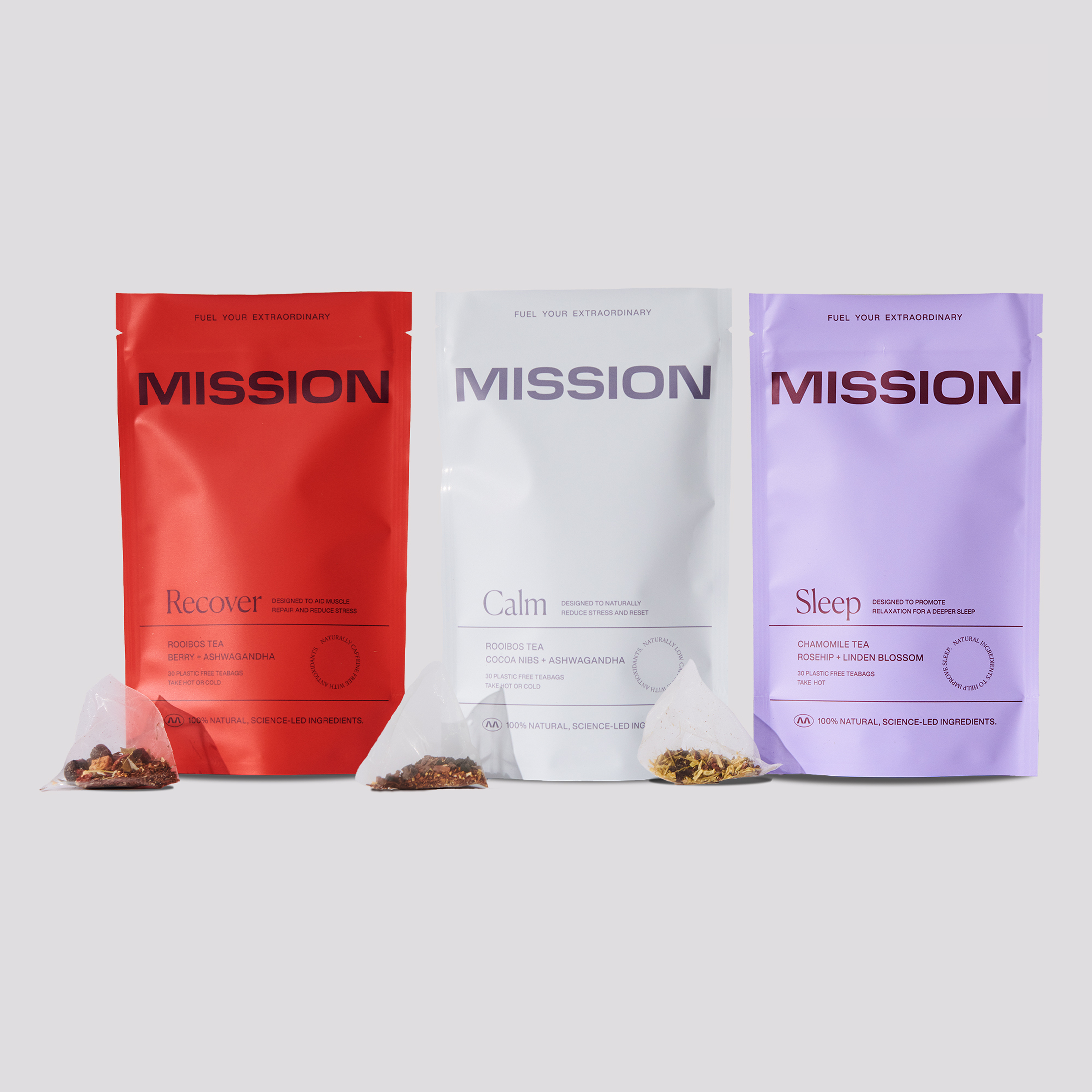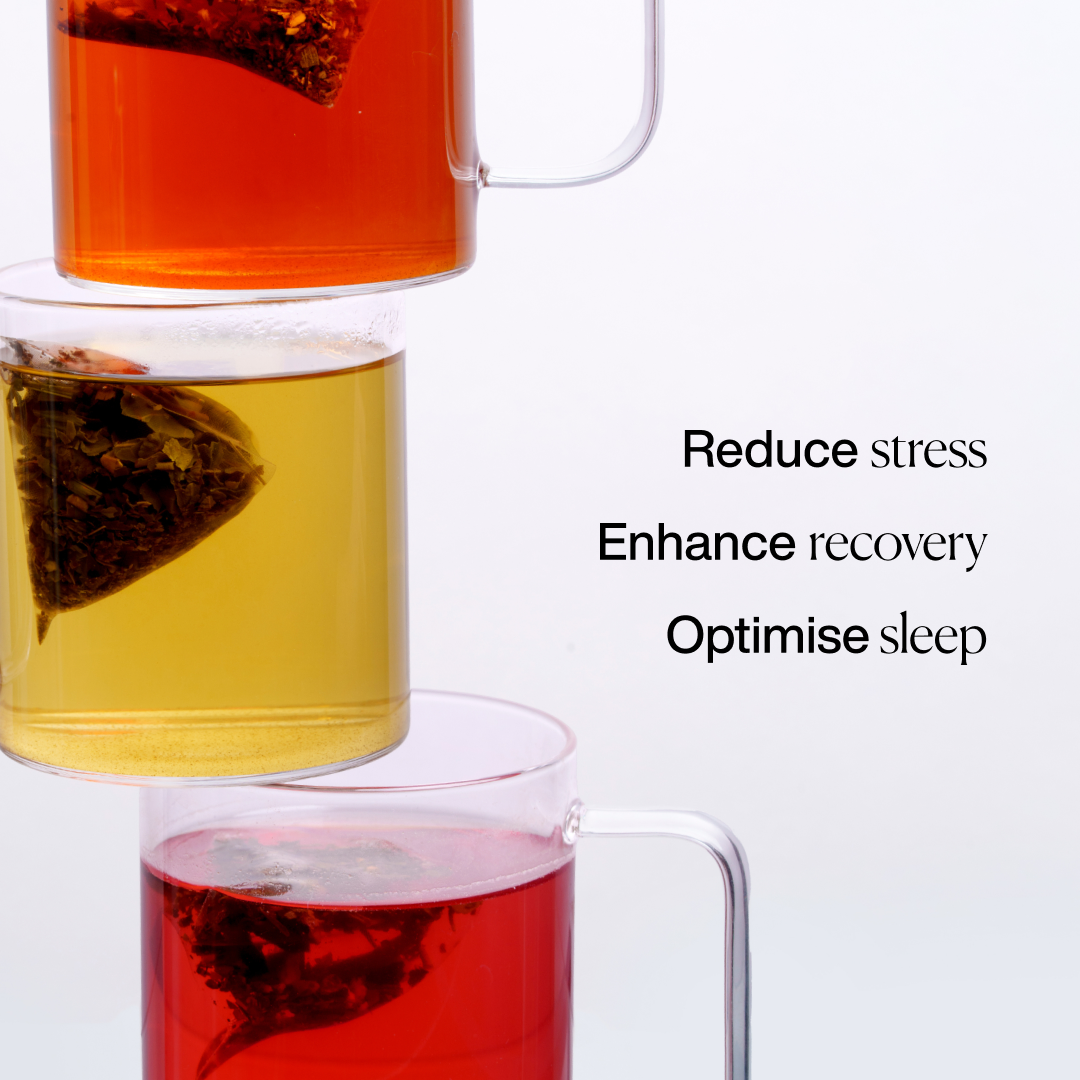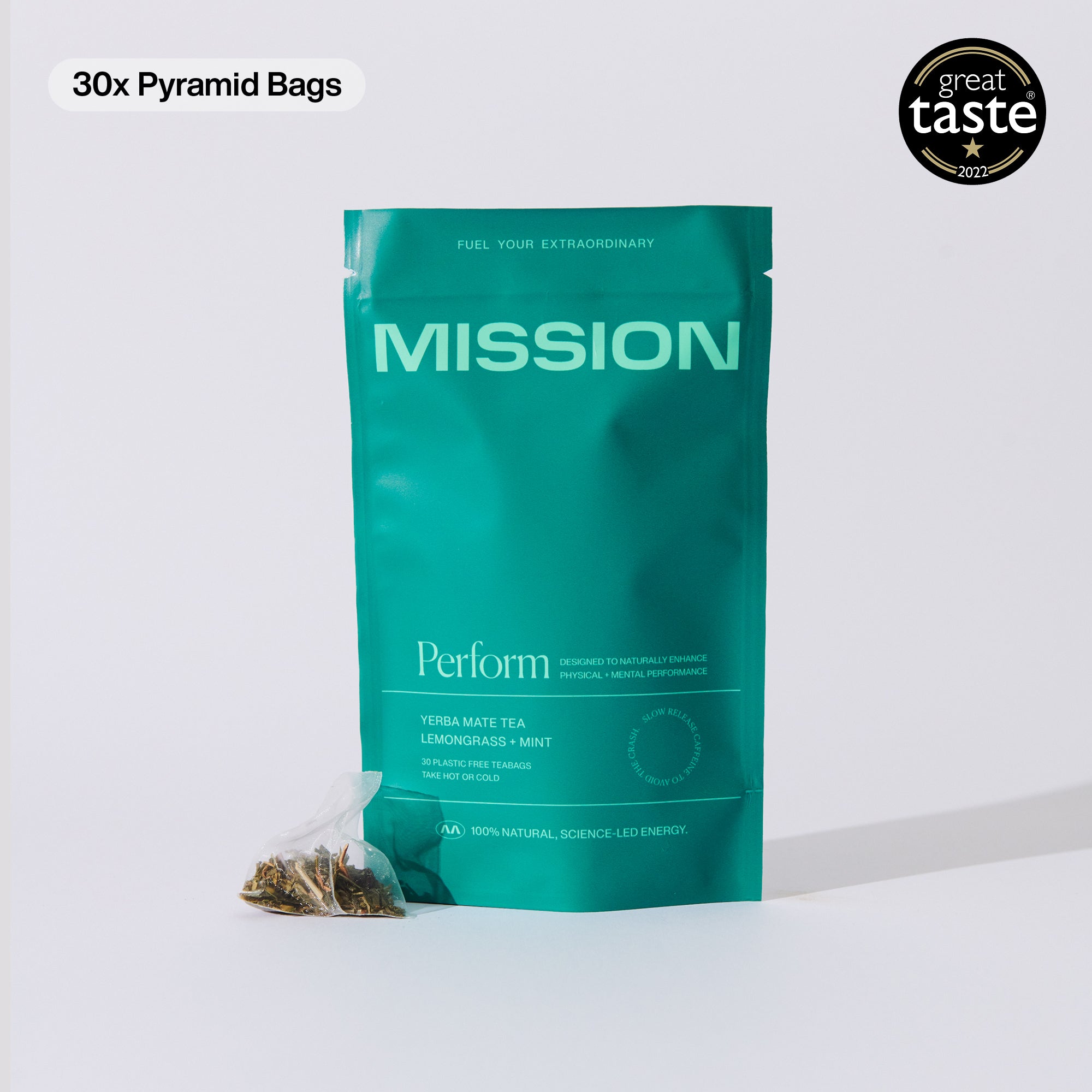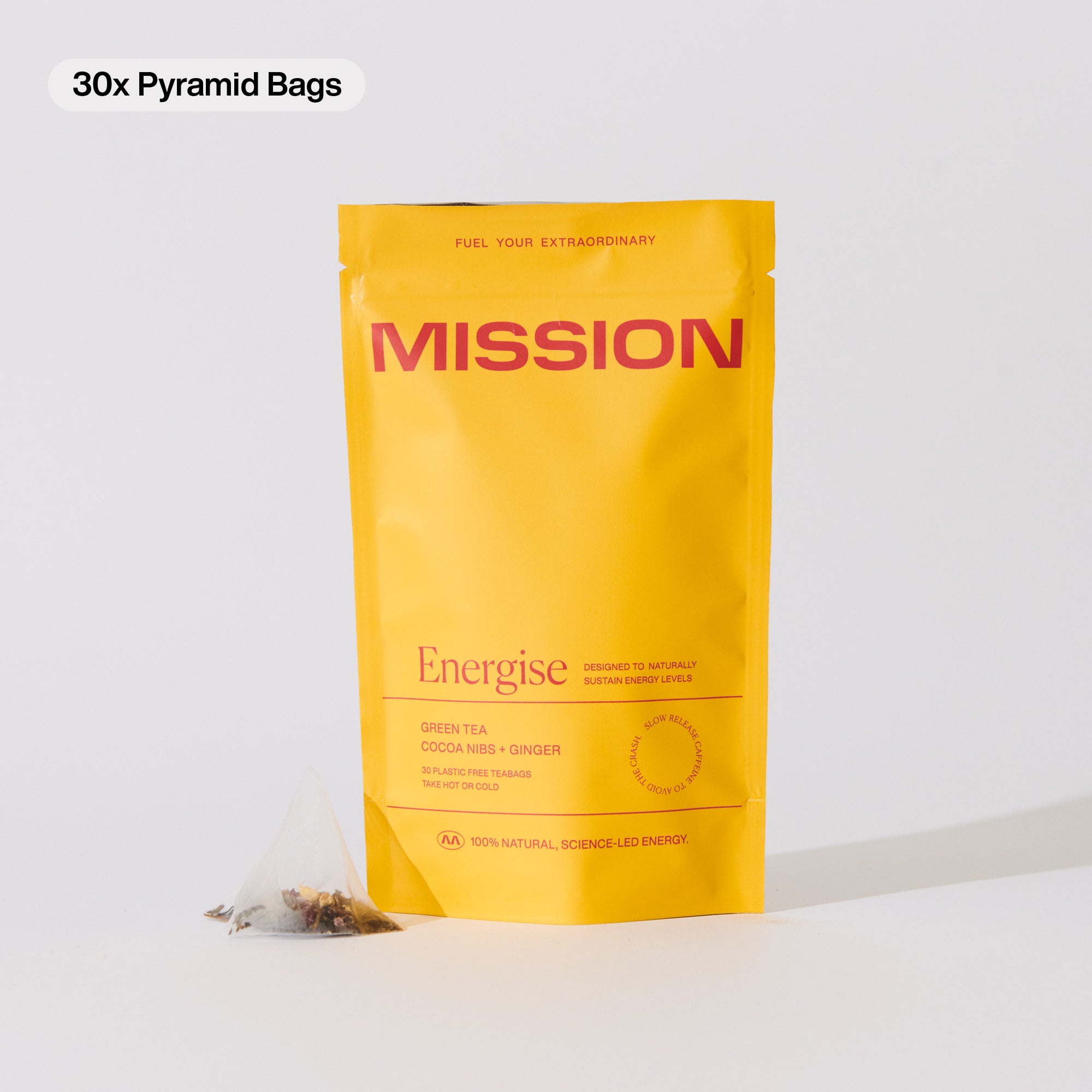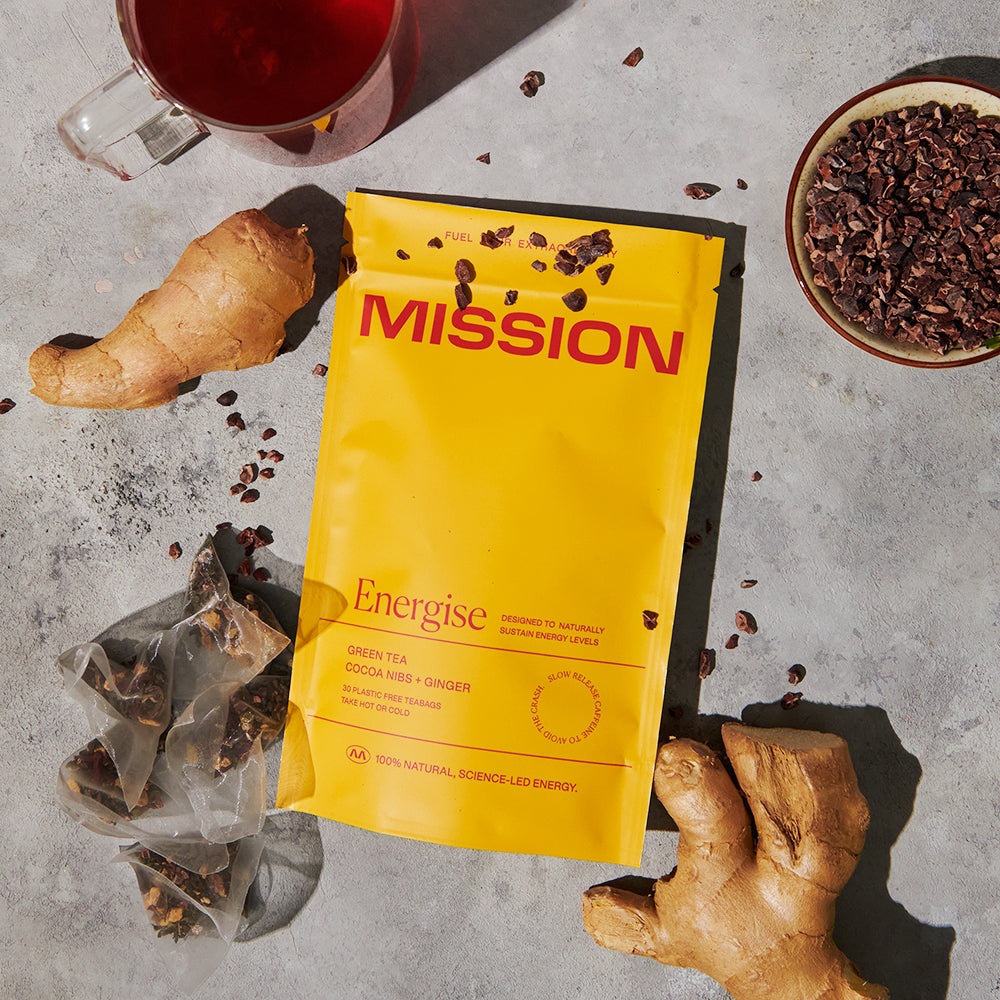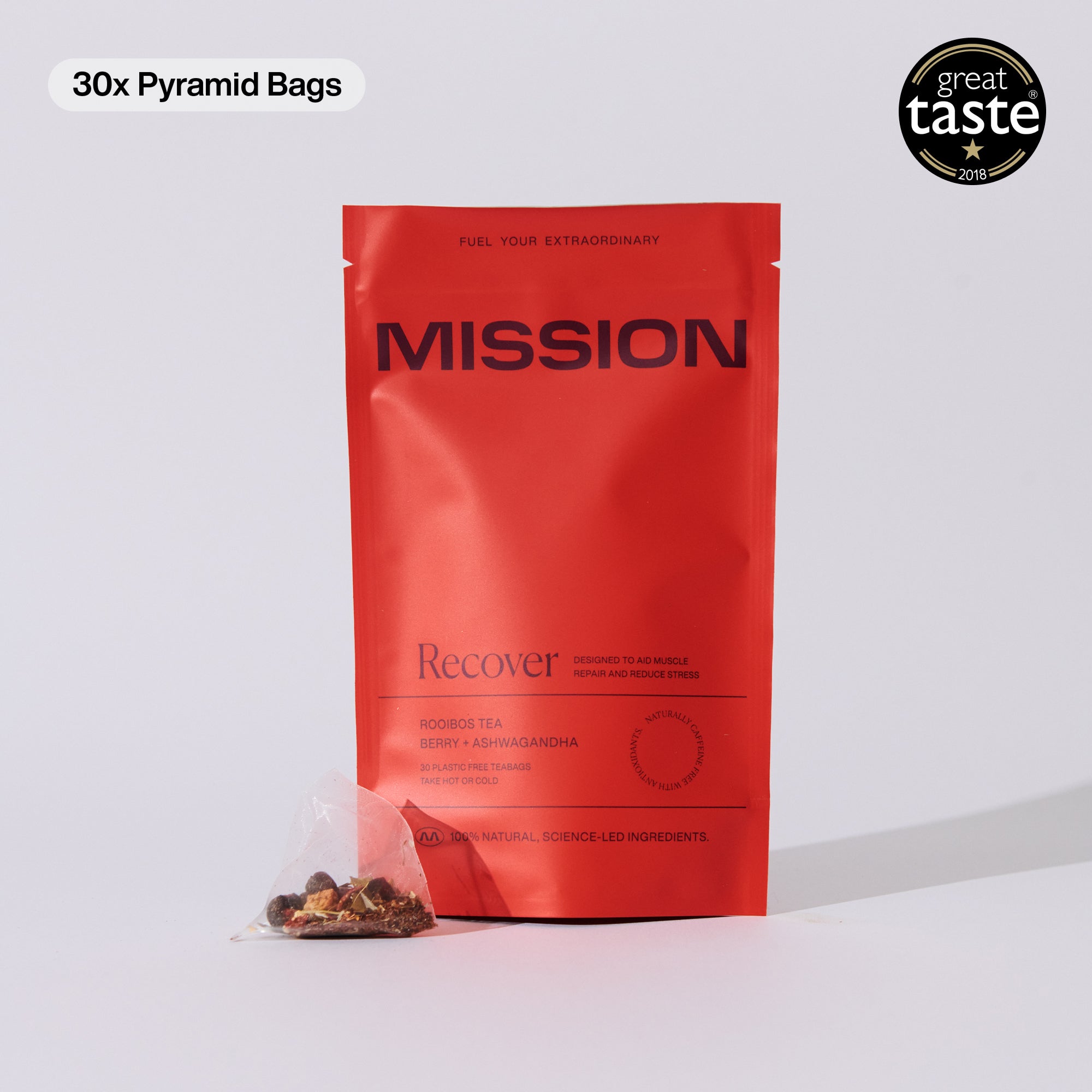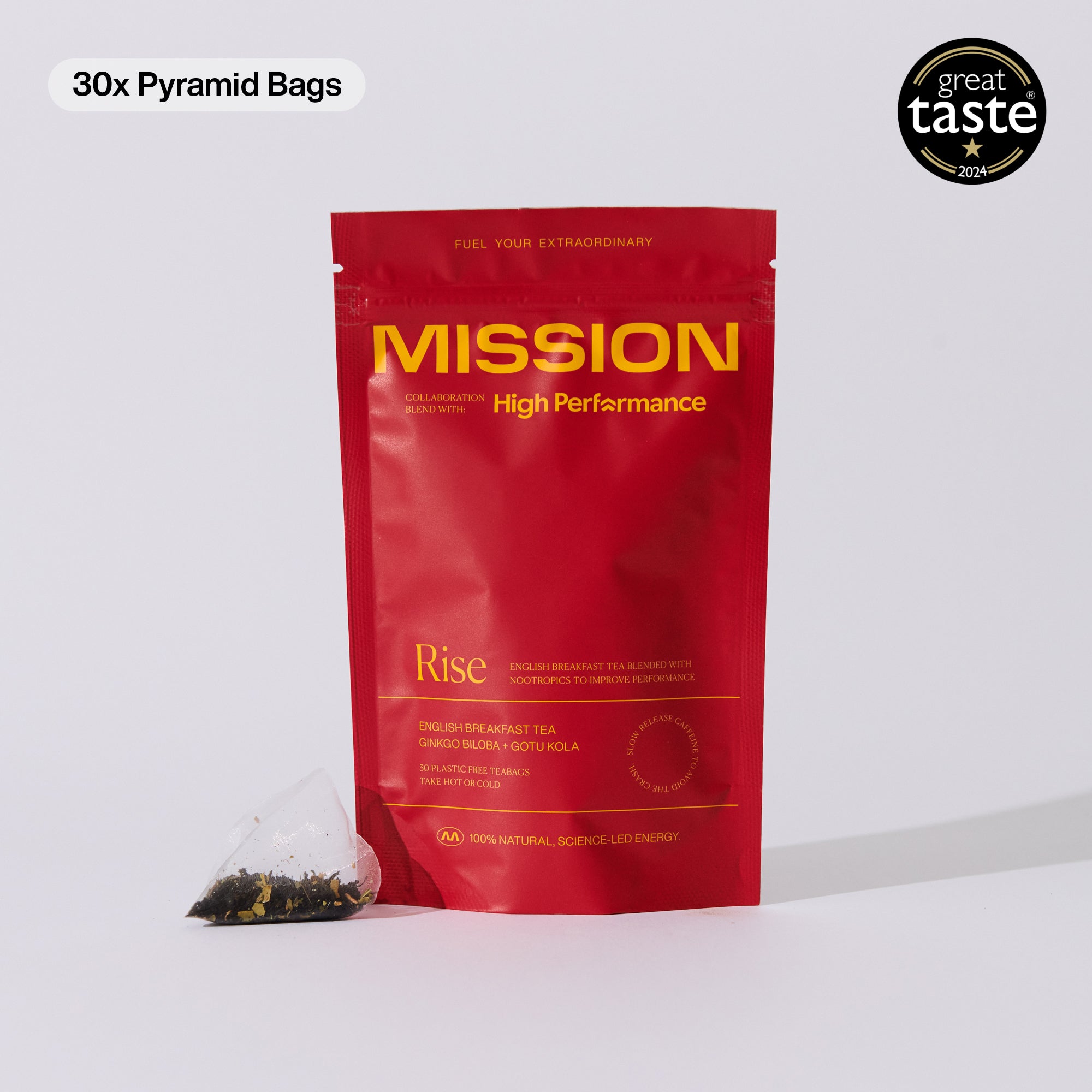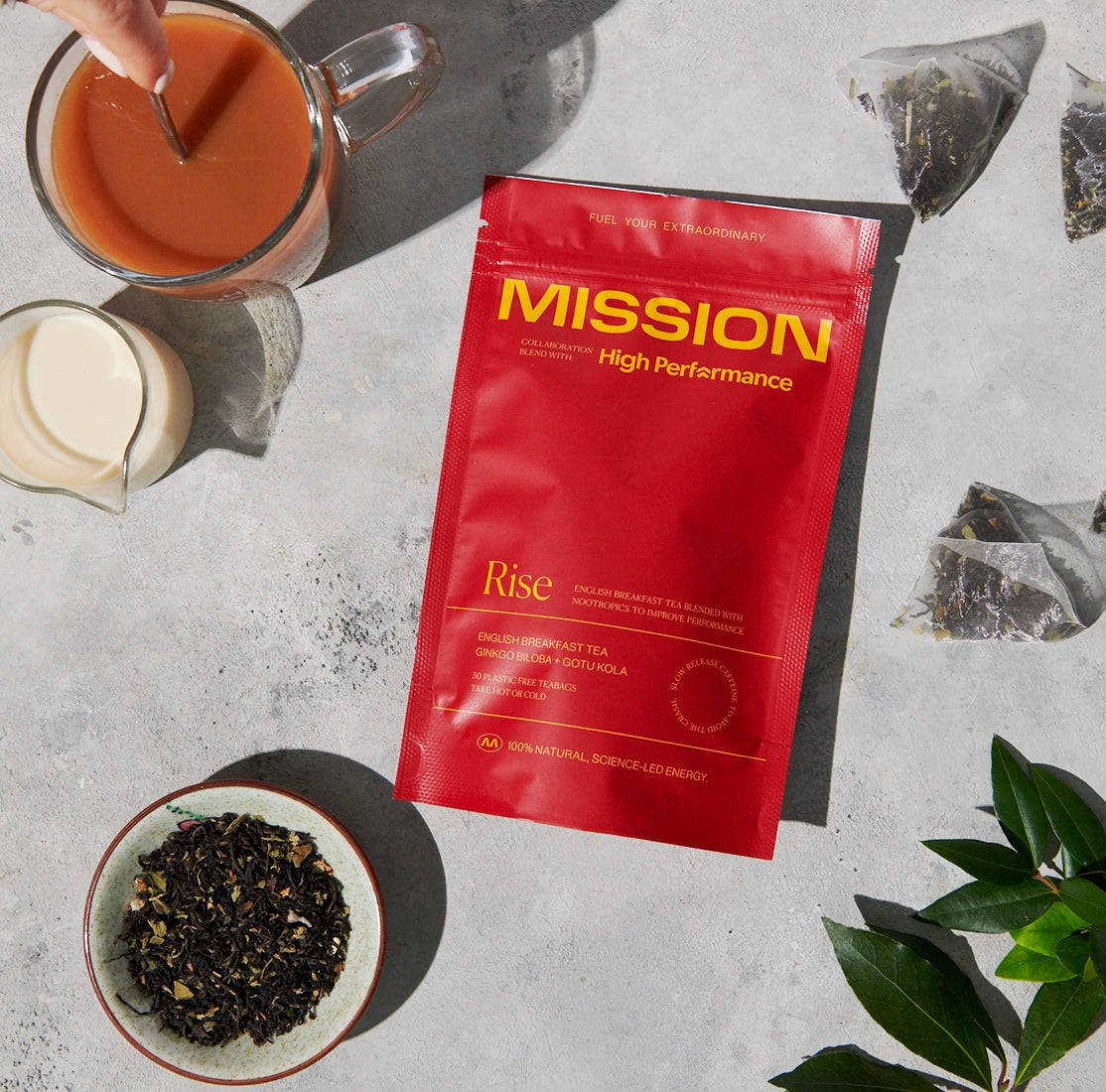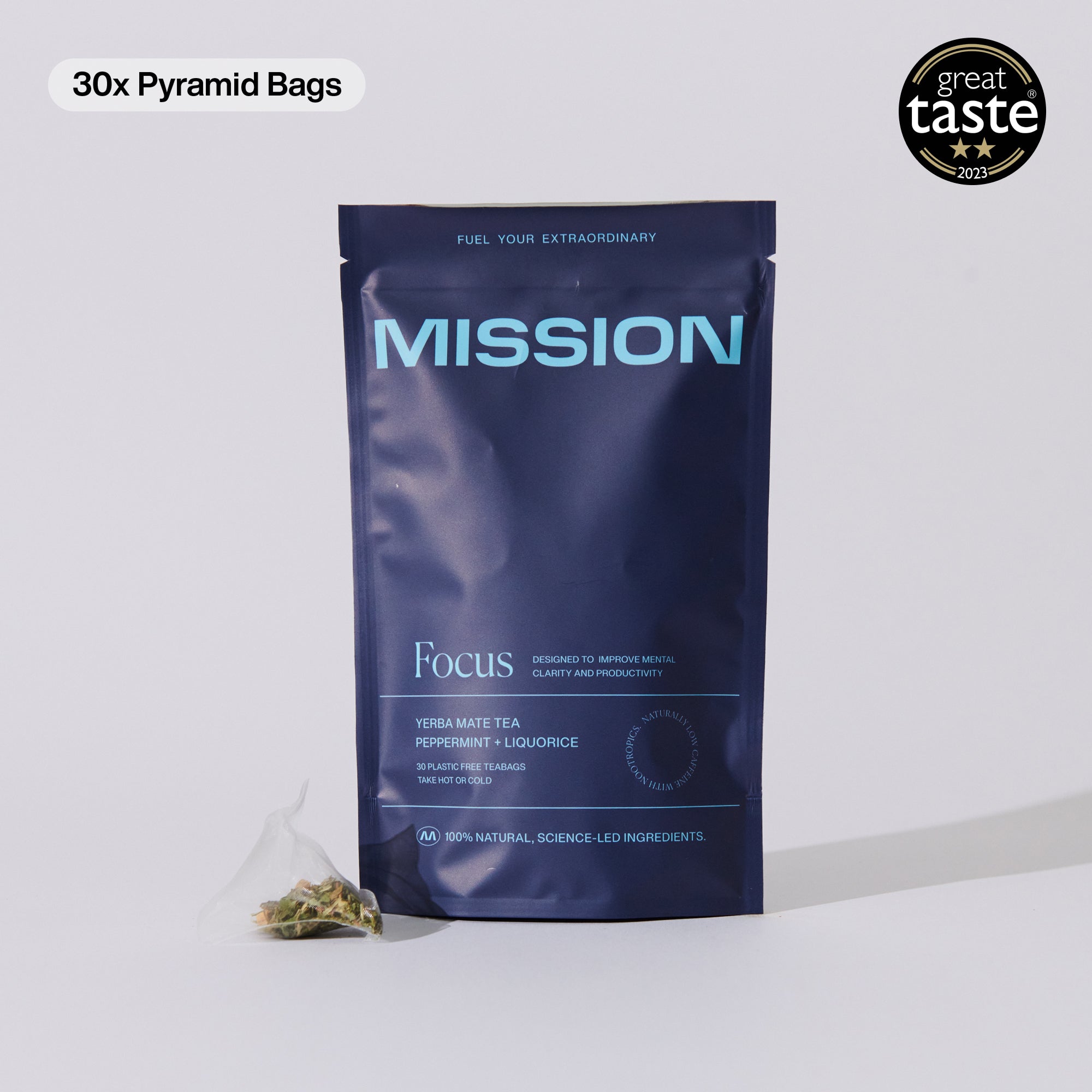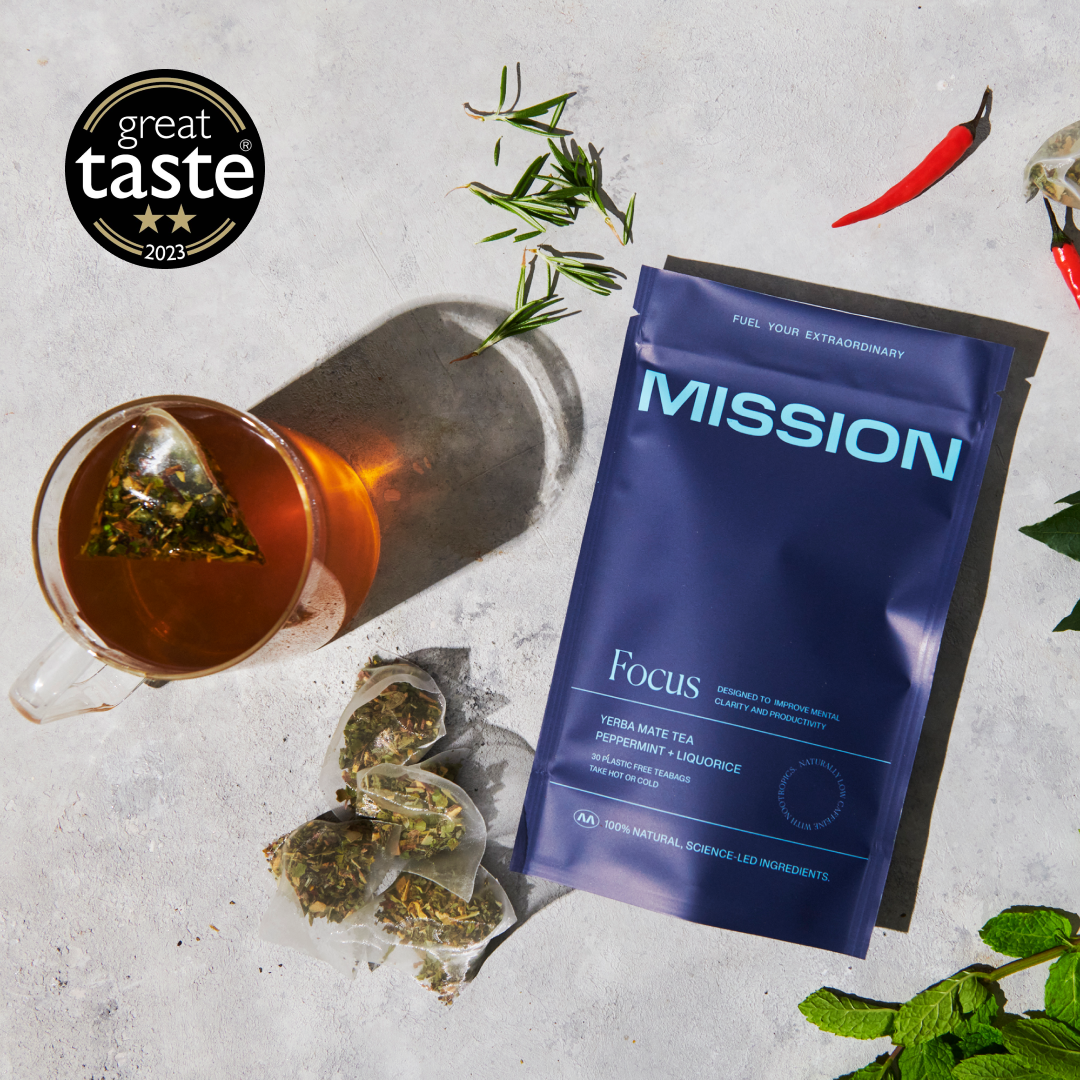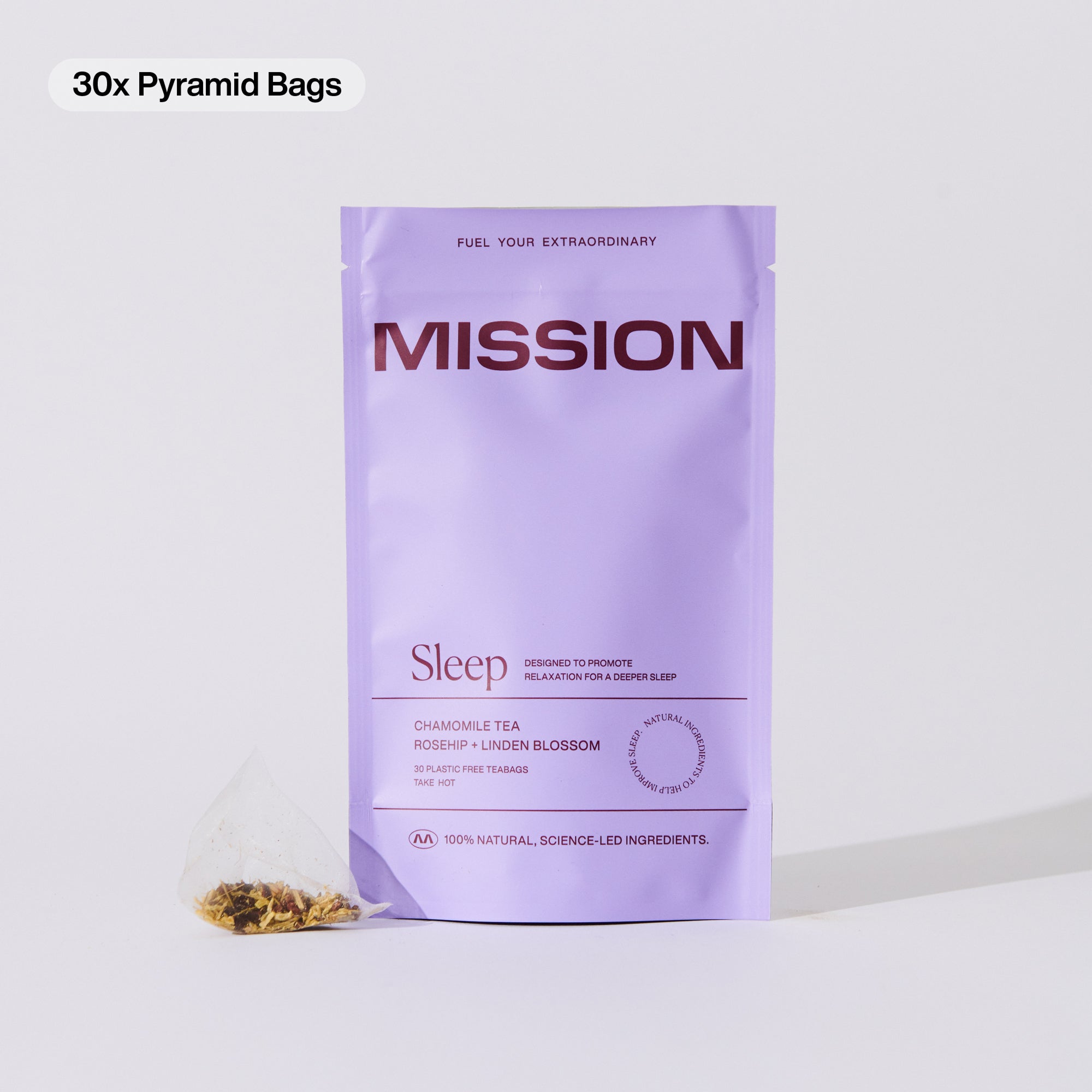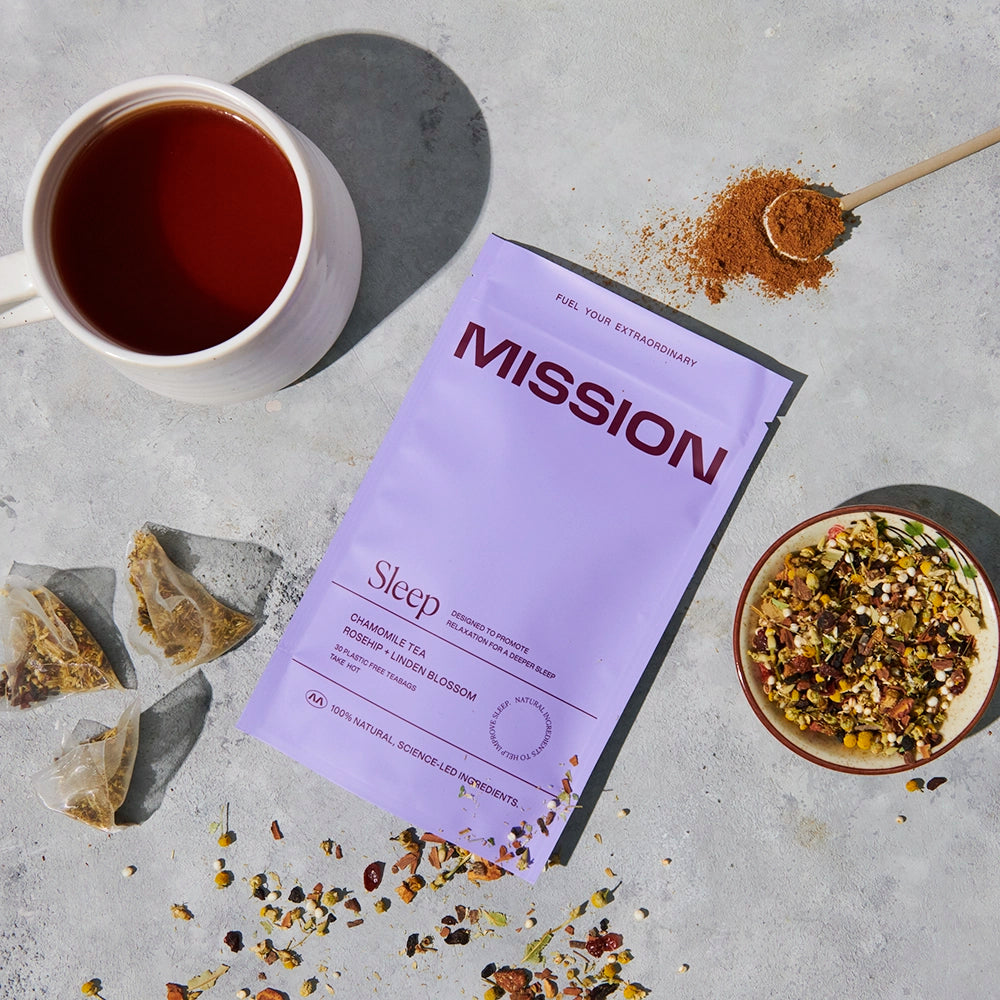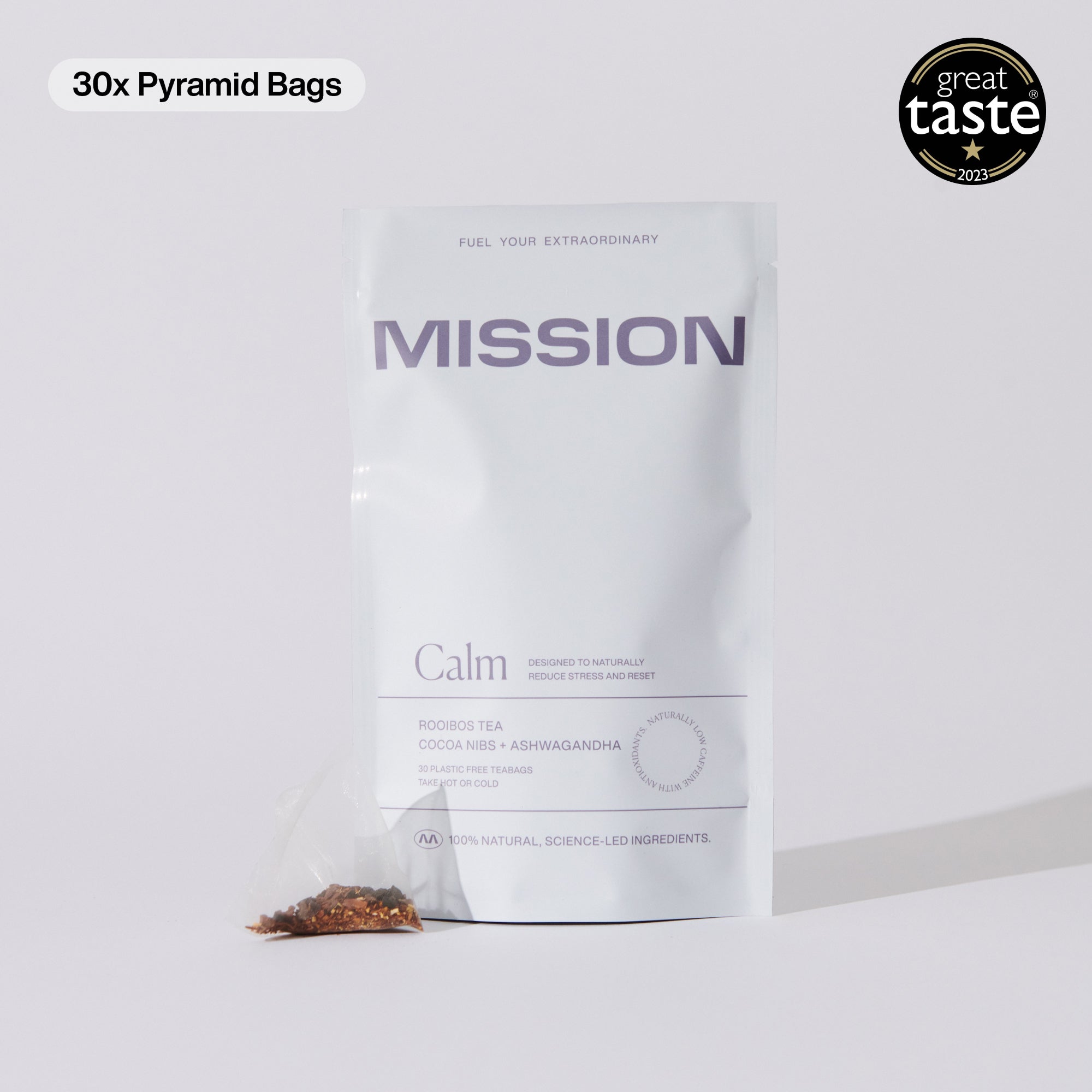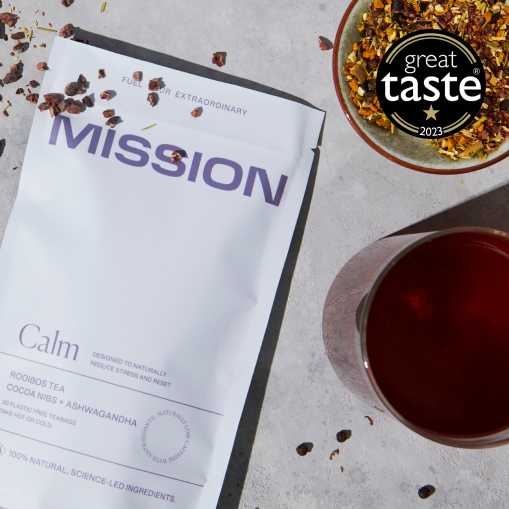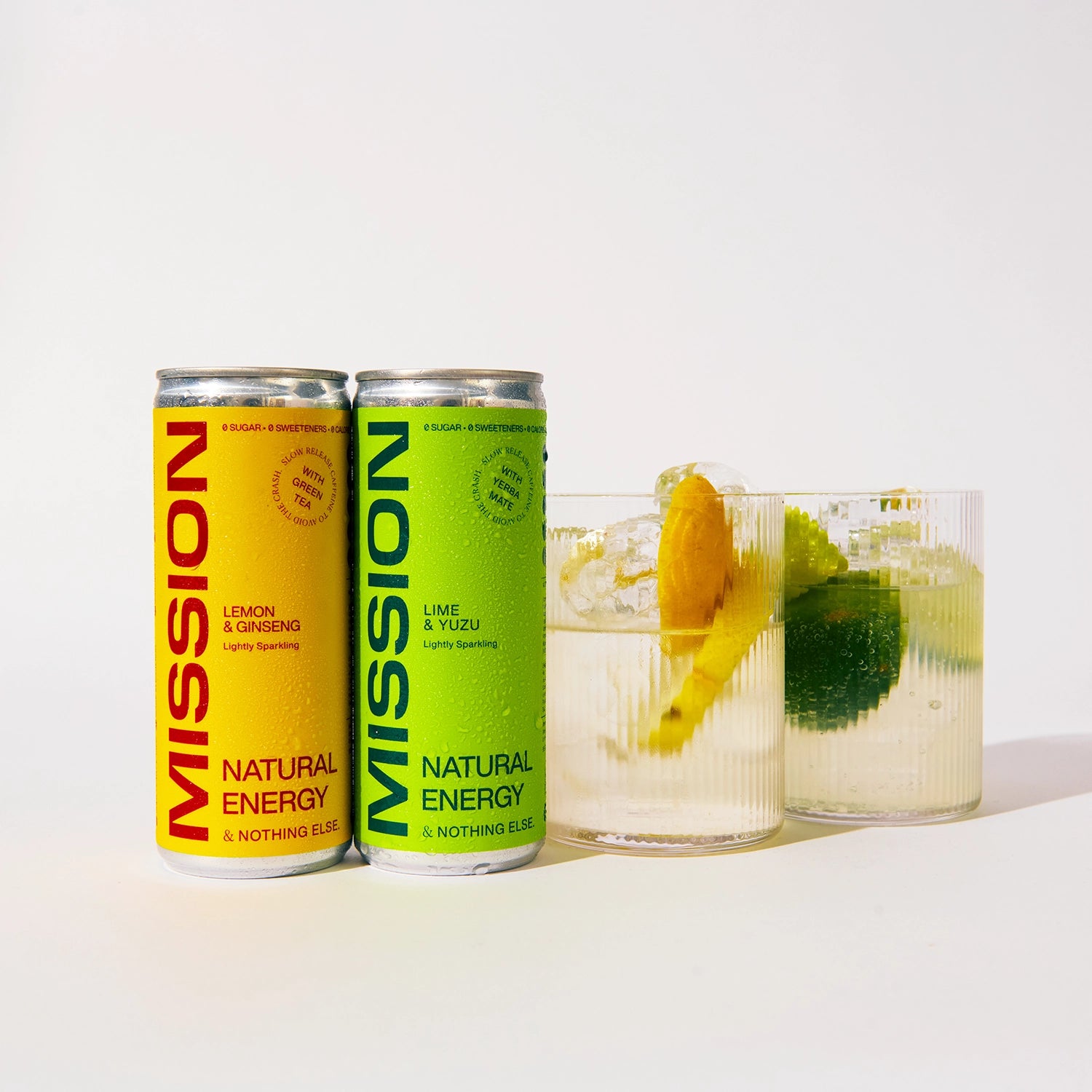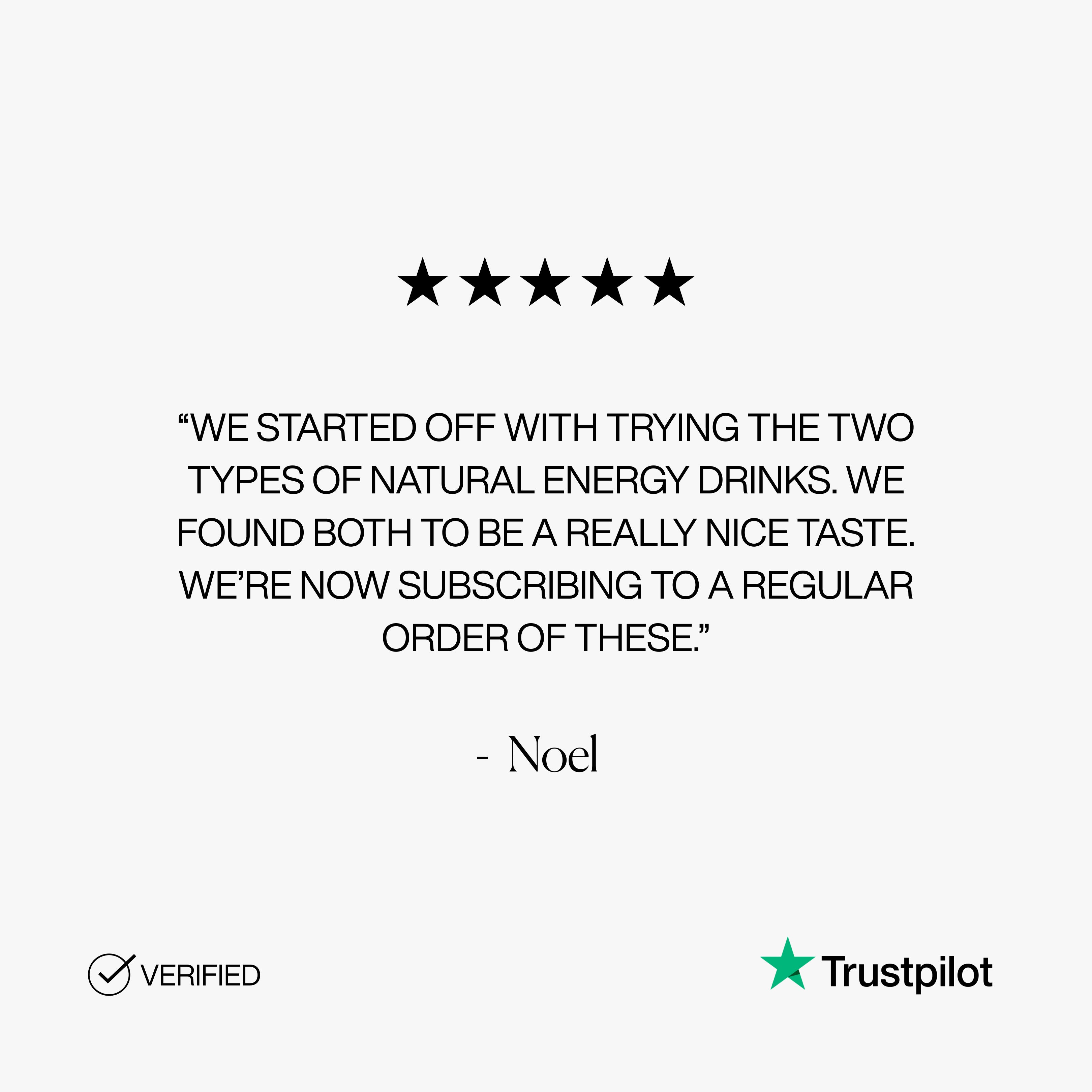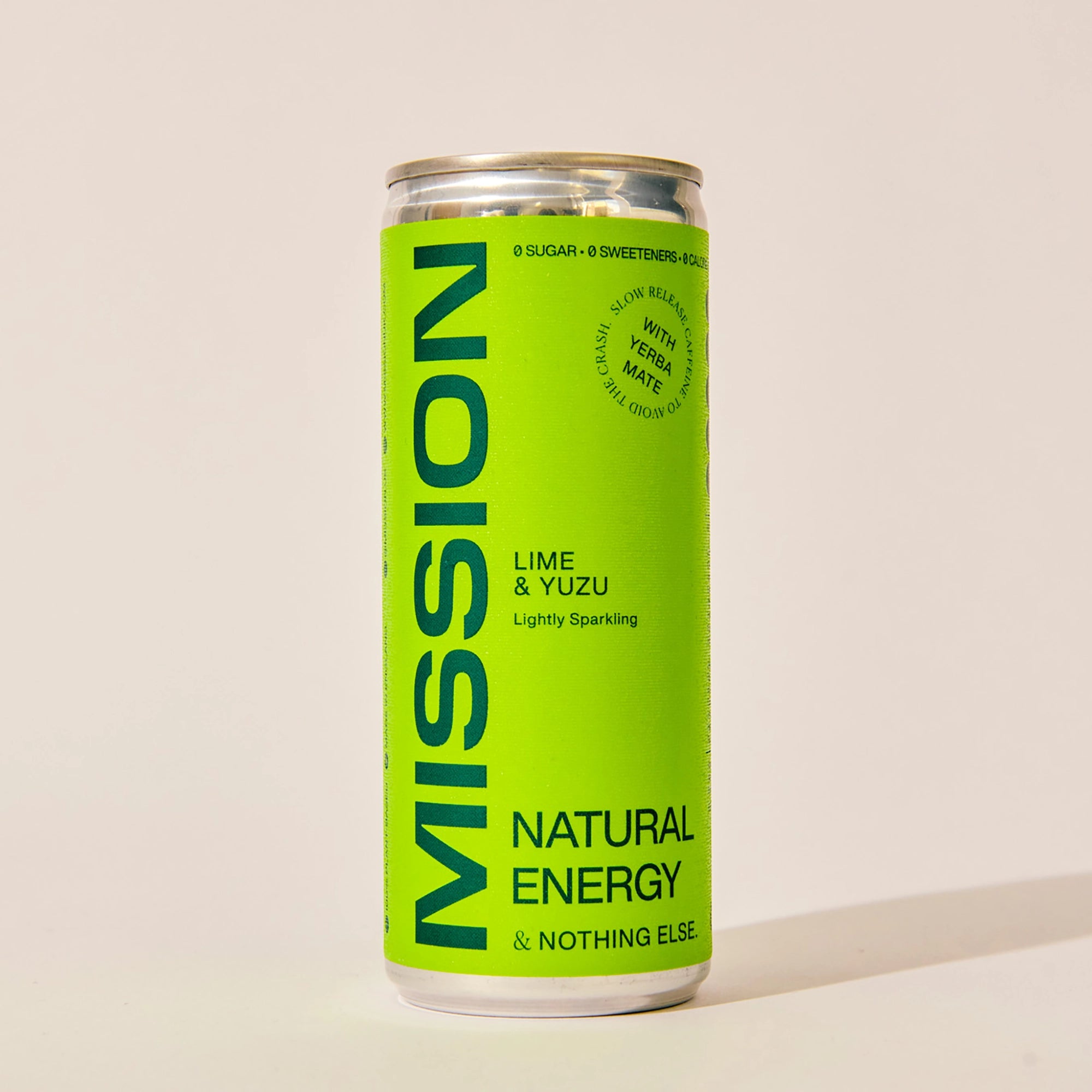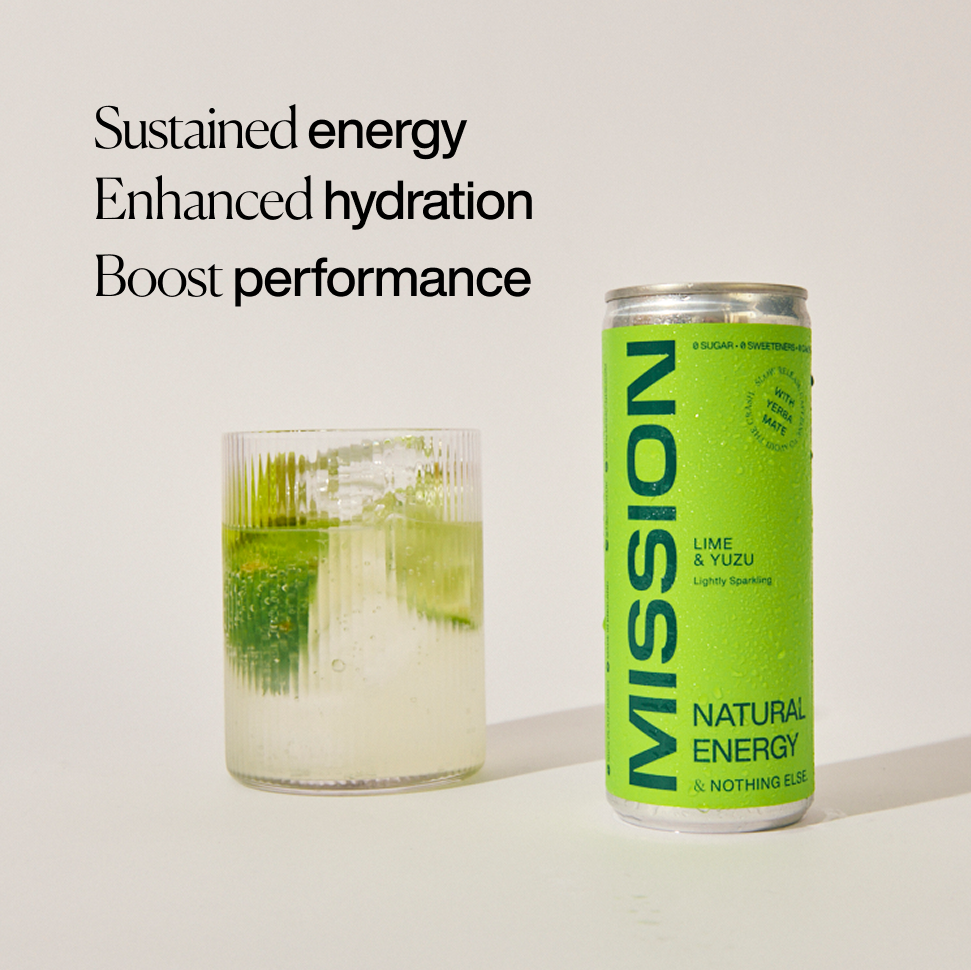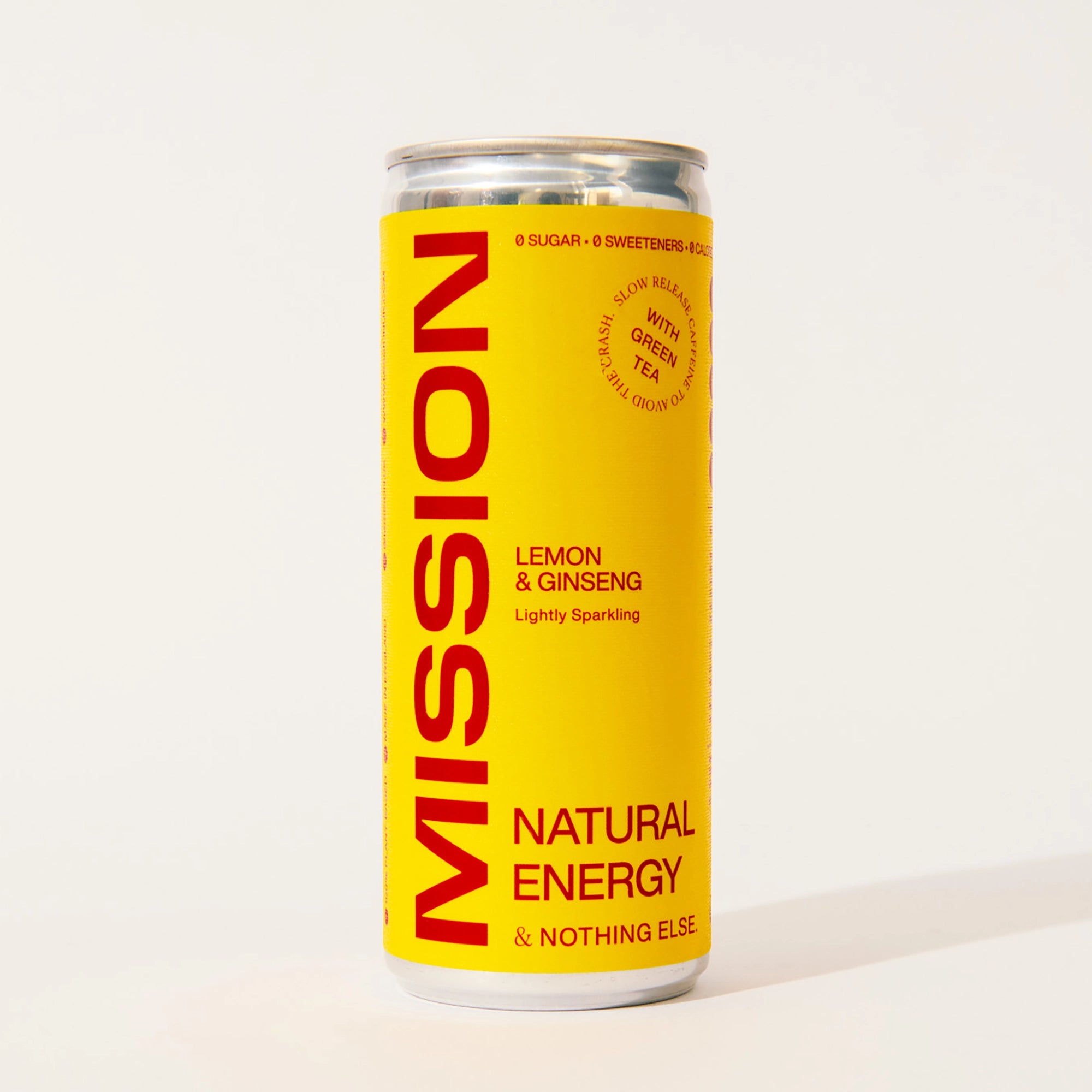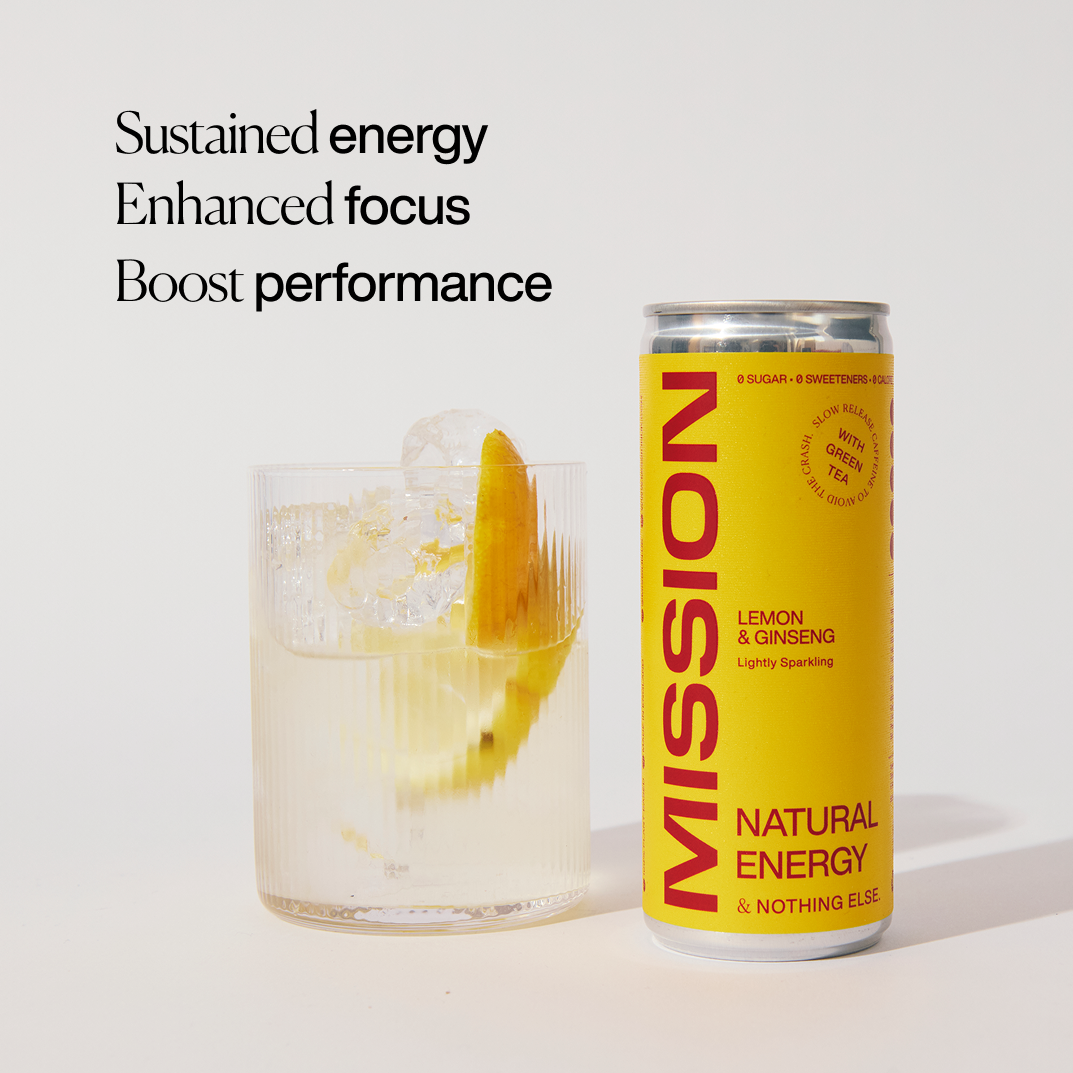The Mission Guide to Caffeine Consumption
At Mission, we talk about caffeine a lot.
Make no mistake, that’s not because we hate the stuff: caffeine can be an incredible thing – it’s in our teas after all!
We do however strongly believe that too much caffeine is too readily available, and that many people consequently consume far too much of it. The knock-on effect of this is huge.
From daily energy lapses to regularly poor sleep, many of us are struggling with the consequences of caffeine overconsumption right now, and relatively few realise that caffeine is the cause.
We want to change this. How? First and foremost through our low caffeine teas that empower Mission drinkers with natural, sustainable energy, like our best-selling coffee and energy drink alternative Energise.

Second is through education – we want more people to be aware of what caffeine is, what it does to us, what it means to over consume it, and much, much more. So, we’ve pulled together a guide on caffeine consumption for you.
Please note that this guide will never be truly finished – there will always be new questions, trends and research that will chop and change what we have below. For now, we’ve been as comprehensive as possible, but if you have a question we haven’t answered, please feel free to let us know about it here.
What is caffeine?
Caffeine is a stimulant naturally found in the leaves and fruits of some plants which are often used as ingredients in everyday drinks, such as coffee, tea, energy drinks and some fizzy drinks, and some foods, like energy bars and chocolate. It’s the world’s favourite performance-enhancing drug – and its most loved psychoactive drug, for good measure.
When put into our bodies caffeine can temporarily make us feel more alert, focused + energised and less drowsy; it can even make us feel less pain. It can also lead to various negative side effects, like insomnia.
Caffeine consumption impacts different people in different ways, with some on one end of the spectrum almost unchanged by it, and those on the other end who can’t take it at all.
We know that, like many things, regularly taking caffeine will build up a tolerance to it in many people, and that those who don’t take caffeine and then do will feel its impact more.
Why does caffeine affect my mind + body?
Caffeine increases activity in your brain + nervous system by influencing chemicals found in our bodies such as adenosine, serotonin, dopamine, cortisol + adrenaline.
Much of what caffeine does to us begins with its relationship with adenosine. Adenosine is a chemical that accumulates in our brains while we’re awake and binds to receptors there, which slows down brain activity. In short, the more adenosine there is in the brain, the more tired we feel.
Caffeine shares a very similar structure with adenosine, which results in it competing with the adenosine for those receptors when caffeine is consumed and makes its way to the brain. The crucial difference, however, is that caffeine doesn’t come with adenosine’s sleepy effect. With the adenosine blocked by the caffeine, the result is the sudden feeling of wakefulness many consume caffeine for.
Caffeine also stimulates the production of adrenaline, which increases your heart rate, opens your airways and gets your blood pumping – much of the reason why caffeine is popular with endurance-based athletes. The production of adrenaline then makes the liver release glycogen, which raises your blood sugar levels and temporarily gives you more energy.
Caffeine also affects dopamine levels by stopping it from being reabsorbed in the brain, which makes you feel happier.
Our bodies are generally quite quick to absorb caffeine, which leads us to experience its effects anywhere from five to 30 minutes after consuming it. In some people, those effects can last up to 12 hours. Which is why many who consume caffeine will have trouble sleeping, despite last taking caffeine far earlier in the day.
What drinks have caffeine in them?
Plenty of drinks contain caffeine, the crucial thing to know is how much.
Drinks that contain high amounts of caffeine include coffee, regular tea, energy drinks and some fizzy drinks.
Coffee, for example, comes in lots of different shapes and sizes, but a flat white from UK coffeehouse Costa – a popular order from a popular chain – contains 277mg.
Our Energise, Perform and Hydrate blends all also contain caffeine. Energise, our popular coffee and energy drink alternative, only contains 14mg of caffeine per serving.

How much caffeine is too much?
It’s widely accepted by health organisations around the world that most people can safely consume up to 300mg of caffeine a day. That means that if a flat white is your order, you’re just shy of your daily limit after just one cup – taking Costa’s version of this popular order as an example.
Some people, including pregnant women and young children, are advised to consume less than this. Pregnant women, for example, should consume no more than 200mg per day.
What are the positives of consuming caffeine?
Caffeine can bring various short-term benefits to your mind + body.
It’s been proven to positively influence mood, improve brain function – benefiting thinking skills, alertness, speed of thought and even memory – and physical performance, especially in endurance-based exercise.
What are the negatives of consuming caffeine?
The negatives of caffeine consumption generally come from consuming too much of it – both per day and in one go.
Taking more than the recommended 300mg per day can lead to various physical + mental reactions. Insomnia, anxiety, irritability, increased blood pressure and upset stomachs are all commonly associated with caffeine overconsumption. Reactions of course vary from person to person.
After we’ve experienced the high of increased serotonin, dopamine, cortisol + adrenaline in our bodies thanks to caffeine, we then have to experience the inevitable + dreaded crash as our bodies react and restore them to normal levels. Of course, the more caffeine we consume in one go, the bigger the crash.
Because caffeine raises our blood sugar levels, our pancreas releases insulin in reaction to deal with the excess sugar. As blood sugar levels quickly return to normal, we ironically end up feeling tired and lethargic. Repeatedly going over the 300mg a day limit can do some serious damage to your body, specifically your adrenals and pancreas.
Unfortunately – like with many other drugs – it’s possible to develop a tolerance to caffeine. This happens because our brains create more adenosine receptors in reaction to the volume of caffeine we’re putting in there, which results in people finding themselves needing more and more of it to experience the positive effects they crave. This is also why we experience withdrawal symptoms when we stop consuming caffeine.
Why is caffeine addictive?
Caffeine works the same way as many other drugs in that the dopamine-fuelled high it provides is an addictive experience. This isn’t helped – again, like with many other drugs – when our bodies develop a tolerance to it.
Once that happens, an increasingly higher volume of caffeine is often needed to create the desired effect. This can eventually lead to people becoming addicted to it by being both physically and psychologically dependent on caffeine in their daily lives.
How addictive is caffeine?
Arguably the best way of knowing how addictive caffeine can be is looking at how your body can react if you stop taking it.
Going cold turkey on caffeine after becoming addicted can lead to some very noticeable physical + mental side effects: headaches, tiredness, muscle pain + anxiety are common symptoms of caffeine withdrawal, which has been known to last up to seven days.
Rather than dropping caffeine completely if you are dependent, gradually reducing the volume you consume bit by bit – giving your body time to adapt – is much more recommended.
How can I optimise my caffeine consumption?
Believe it or not, it’s possible to experience caffeine’s benefits without necessarily falling victim to its cons.
Finding this state isn’t the stuff of make believe, more simply a combination of being aware of your personal caffeine tolerance, not exceeding the recommended daily intake of 300mg, and avoiding regularly putting too much caffeine into your body in one go. See our whitepaper on how Mission products influence for guidance on consuming caffeine safely and sustainably through our teas.
No matter if you want to give caffeine a go for the first time or you want to cut down from overconsumption, the golden rule is to start small to give your mind + body time to adapt.

Sources
- ‘Coffee and Health; it’s not just about the caffeine…’, 1 December 2019, BDA
- ‘Water, drinks and your health’, NHS
- ‘Caffeine’, BetterHealth, Victoria State Government Department of Health
- ‘Why do I feel wiped out after too much caffeine?’, Susan Blackmore, BBC Science Focus
- ‘What does caffeine do to your body?’, Hannah Nichols, 16 October 2017, Medical News Today
- ‘Full of beans: Costa coffee has more caffeine than Red Bull’, Jon Ungoed-Thomas, 23 December 2018, The Sunday Times
- ‘Your Brain On Coffee’, AsapSCIENCE, 28 August 2014, YouTube





